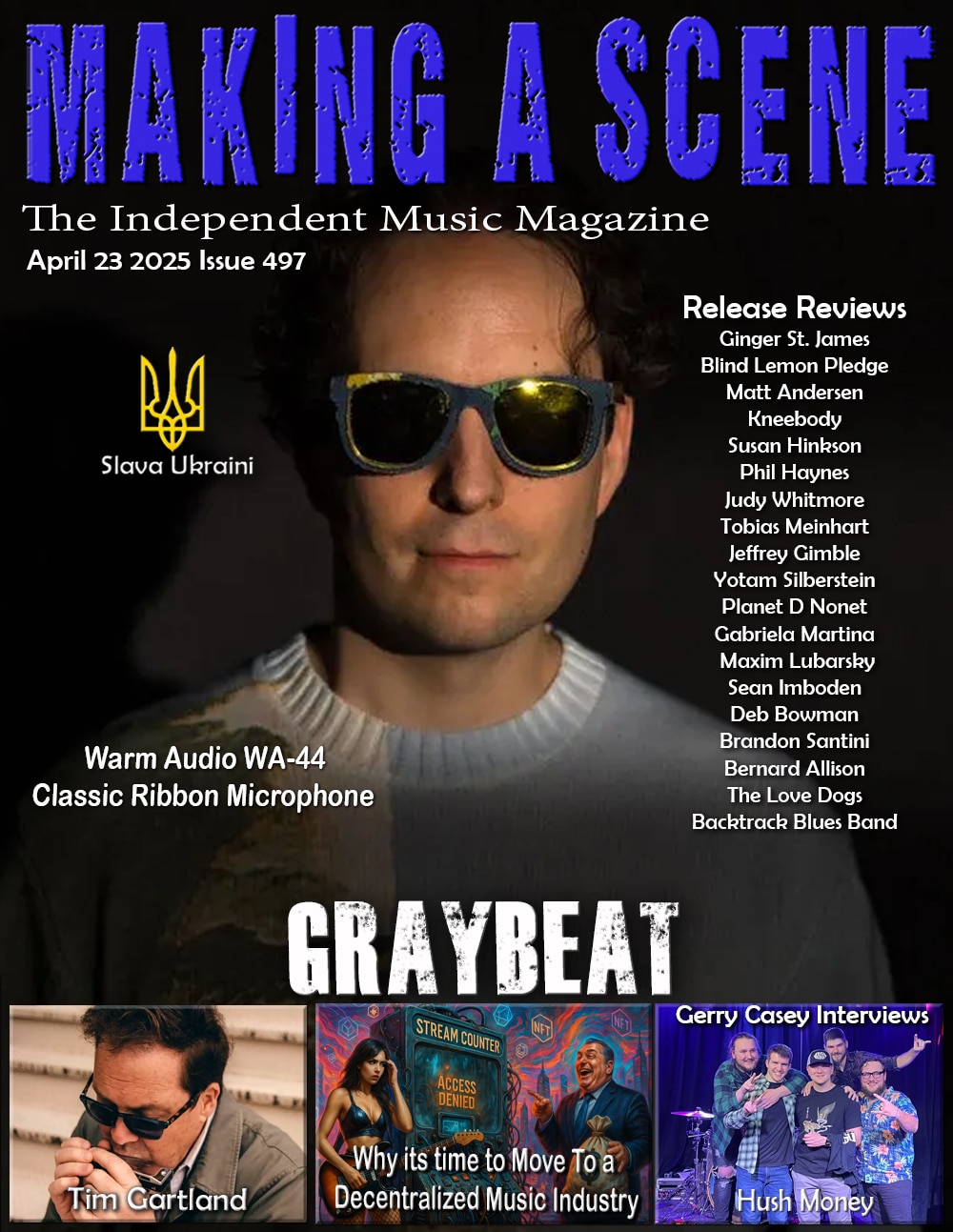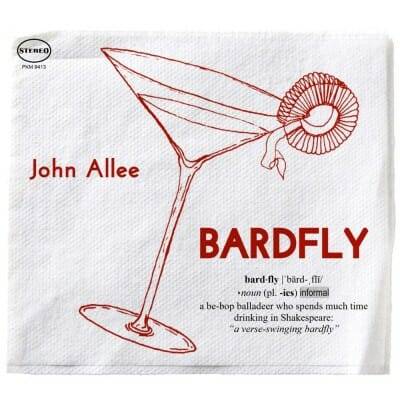John Allee Bardfly
John Allee
Bardfly
Portuguese Knees Music
There have been a couple of other Shakespeare related efforts to cross this writer, a former English major no less, desk’s recently, and for reasons of those albums being a bit esoteric or somehow unconvincing, we didn’t bring ink to these pages. So yes, John Allee, veteran stage and TV actor and singer/songwriter breaks through this impasse, as his approach brings cool, hipster groove to Shakespeare’s words. And, Allee does his part in modifying the Bard’s words too. Sure, it’s literate; that goes without saying but it swings too. There are enough echoes of that spoken word beat poet vibe of artists like the late Ken Nordine that imbue Allee’s effort. Allee is not only a vocalist but a composer and lyricist who knows how to bring drama to song as well as the stage. Here he assumes the persona of Feste “The Bardfly” Johnson – taking a wide swath of Shakespeare’s canon from Othello to Henry IV as a platform for blues, ballads and hymns to spoken word.
The Los Angeles-based Allee, who at this point only has an actor website, not a musical one, composed all the music and through the baker’s dozen set some of Shakespeare’s words directly to song while on seven others he essentially became a co-writer. Maybe that’s one reason it works so well. The other reason is the presence of some the city’s best jazz musicians – Mahesh Balasooriya (longtime touring pianist with Arturo Sandoval), drummer Aaron McLendon (Scott Bradley’s Postmodern Jukebox, Taylor Eigsti), bassist Dominic Thiroux (Kamasi Washington, Renee Olstead), saxophonist Javier Vergara (aka the “Mexican Coltrane,” who has played extensively with Poncho Sanchez) and trumpeter Matt Von Roderick (Brad Mehldau, John Medeski). That’s a can’t miss lineup.
Bardfly grew organically out of Allee’s role as Twelfth Night’s Feste the Clown in a theatrical mashup called Barfly Shakespeare, presented at a night club in North Hollywood. He was tasked by the director with creating a jazz club vibe for the tunes, the first being “The Wind and the Rain,” which he recast as easy swinging, hepster strut. That one closes the album. Yet, it’s the opener that draws the listener in, the eight plus minutes “Bardfly Blues/Samingo” which Allee begins with this phrase, “Now entertain conjecture of time – maybe it’s 1958, maybe it’s 1598, maybe it’s today…”
Leave it to Allee for find the magic and the music in Shakespeare’s lyrics, although, according to Allee, all the Bard’s plays had music, and many had lyrics. He comments, “When I first started playing around with his lyrics, I realizes that they are almost like beat poetry – they sound so cool when you swing them. He was also a shameless adapter of songs. So taking his lead, I gave myself permission to adapt his songs, sometimes even grabbing little snippets of lyrics he references in a scene and developing them into full-blown songs.” Allee did this with the ballad “Never Come Again,” based on Ophelia’s scattered ramblings in her famous mad scene from Hamlet.
Musically we’re blessed with many treats too as pianist Balasooriya finds just the right blues notes in the opener, Vergara plays sensitively and emotionally on “Until the Break of Day” and Von Roderick’s trumpet soars to a NOLA beat on “Tomorrow is St. Valentine’s Day.” That NOLA beat continues into the fiery “Philomel/Hold Thy Peace,” a medley that gives each band member a turn and Allee some scatting too. “Mistress Mine” and “Sigh No More” prove him to be more than a capable balladeer with the band in gentle support. In the spirit of Van Morrison (although Allee probably didn’t go there for inspiration), he has a witty talk-sing dialogue with the horns (the muted trumpet is especially effective) on the seductive “The Hungry Lion.”
“Green Willow” is a hypnotic ballad based on Desdemona’s famous prescient lament in Othello, showcases Allee’s theatrical side. “Full Fathom Five” is a melancholy hymn with shifting tempos and a whimsical 5/4 coda. “Heigh Ho the Holly” has the band at full throttle with straight ahead soaring solos over tricky changes. As he’s paced the album well to this point, he follows with the solemn yet hopeful ballad “Come Away Death” and the aforementioned “Never Come Again” before ending on the high note of “The Wind and the Rain.”
The beauty and multi-leveled appeal of this album is that Shakespeare lovers and non-lovers can both dig in. The vocals and musicianship are top shelf. And, better yet, that cool vibe one senses in the opening, stays intact throughout, balanced with superb ballads.
- Jim Hynes
Discover more from Making A Scene!
Subscribe to get the latest posts sent to your email.















































